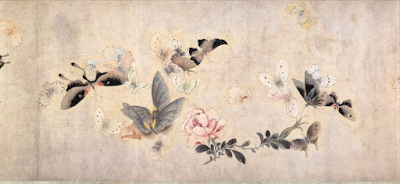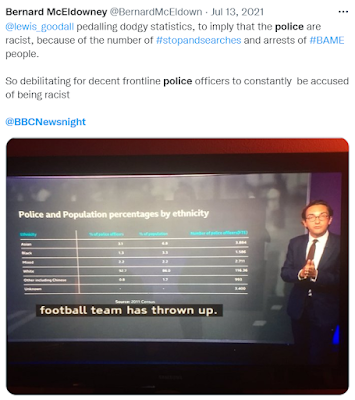 |
| Qing dynasty art, attributed to Ma Quan [no relation to Ma Barker] |
They are like the most endangered species of butterfly - almost never seen and extremely hard to capture.
The latest pair are particularly intriguing.
She
complained that the BBC edited her
Today interview and removed a key bit of what she wanted to say:
Today
BBC Radio 4, 1 December 2021
In an item about Chinese ‘debt trap’ diplomacy we interviewed Professor Deborah Brautigan, who explained that this ‘is the idea that China is deliberately luring countries into borrowing more money than they can afford with the goal of using that debt for strategic leverage, to seize assets of some kind or otherwise push the country to do China’s bidding.’ She went on to give an example of the Sri Lankan port of Hambantota, saying it was used by the Trump administration to promote this theory.
However Professor Brautigan’s further point, that these ideas have little basis in fact, was edited out of the broadcast interview. In fact Professor Brautigan’s research shows that Chinese banks are willing to restructure the terms of existing loans and have never actually seized an asset from any country, much less the port of Hambantota.
We apologise for the error.
7/2/2022
Googling around, it turns out that the BBC also wrote directly to the China-defending professor and blamed an editing error by an inexperienced producer.
Guess what though? The BBC's 'correction and clarification' misspelt her name. She's Professor Brautigam, not Professor Brautigan.
Standards really are slipping at the BBC.
Talking of which, the other new 'correction and clarification' concerned yet another botched Newsnight report, and what looks like a particularly slipshod example:
Newsnight
BBC Two, 13 July 2021
A graphic attributed the following statement to the Government Race and Disparities Report 2021:
Not a single police force in England and Wales registered an arrest rate of less than 20 for every 1000 black people.
By contrast not a single police force in England and Wales registered an arrest rate of more than 20 for every 1000 white people
We should have made it clear that this conclusion had been carried by The Independent newspaper the previous year in a wider survey of social and economic data on disparities between different ethnicities in the UK and reflected statistics from a different Government website which was now out of date.
The most recent figures show there are four police forces with an arrest rate of below 20 for every 1000 black people.
4/2/2022
As I've moaned before, it's hard to track the guilty BBC party after these BBC statements about poor BBC reporting, as the BBC keeps its mouth shut and rarely names names, most likely in order to spare their people's blushes. So it often takes a lot of patient digging to track down the culprit and the context.
'Advanced searching' on Twitter reveals however that it was my favourite Newsnight reporter, shiny-faced Lewis Goodall, who bungled it here.
Pleasingly, a retired police officer called him out on it for 'pedalling dodgy statistics' at the time - and for BBC-style race-baiting too:
As so often, it took over six months for the BBC to post that 'correction/clarification' on a page hardly anyone other than me reads.
I think Lewis should correct it publicly on Newsnight and explain what he did wrong.
[Chances of that happening = Zero].














